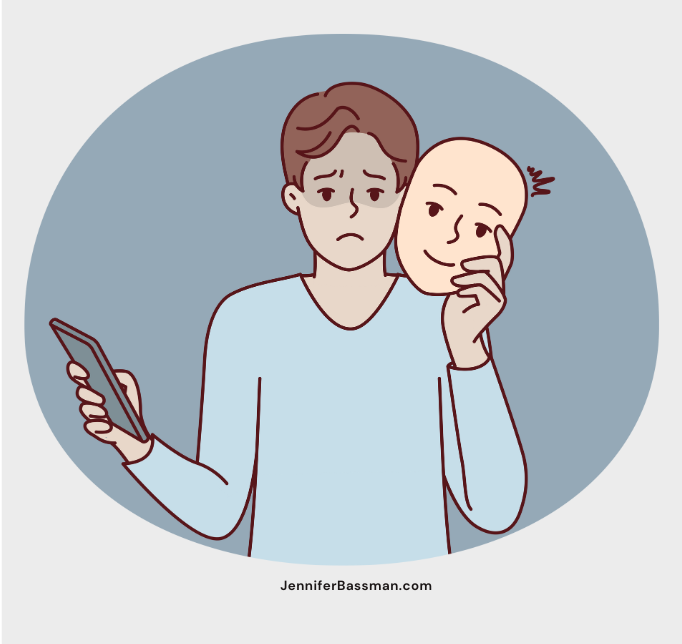Raise your hand if sometimes you just feel exhausted by life and beaten down by your stress. Yeah, me too.
Listen, I would be lying if I didn’t feel some version of this yesterday when I hit every single red light on my way to an appointment. (The Traffic Gods and I are not on friendly terms.)
If you find yourself asking “why is everything so hard and stressful?” regularly, it’s time to reflect on the obstacles that are present in your life that make you feel this way consistently.
Our lives are complex and full of unique challenges that can make us feel as though we are the only ones struggling. And, it can feel next to impossible to relieve stress at this point.
{ Join My Community to Get Quick Burnout Recovery Tips, Support }
As a recovering perfectionist, I have to work to make myself finish projects regardless of how much I fear their failure. When I can feel that stress building up, I have to stop myself to acknowledge what fears and feelings are building an obstacle for me. If I had a dollar for every time I caught myself worrying what other people would think about my work or ideas, I could probably retire right now.
Stay tuned and I will share my seven tips to help you relieve your stress when life feels too hard. While some of these tips may seem to obvious or simple, this would be the point I would challenge you by asking – why are you trying to make things harder than they need to be?
7 Tips to Help You Relieve Your Stress When Life Feels Too Hard
- Be aware of your feelings. It’s healthy to have and display a range of emotions. With all of the other things you track throughout your day, your feelings may be the last thing you think about. In fact, most of us are taught to “put our feelings aside” to get through difficult situations. Take time to acknowledge your feelings and validate them instead of choking them down. You can journal, talk with a friend, or even discuss them with yourself and a mirror.
- Notice the negative self-talk. The way you think about things really does affect the way you feel, as well as, how you act. If you tell yourself you won’t be good at something, the outcome of a project will suck – it’s going to feel that way. This isn’t a situation where I want you to jump into over-positivity mode. However, if you can start to point mind toward empowering thoughts, you are more likely to be able to accomplish your goals in the manner you want. Begin a list somewhere handy to track your thoughts – when they turn negative and what triggers them.
- Focus on what you can control. Our ability to see what is happening in other people’s lives and minds through social media and a 24/7 news cycle, has made many of us feel like we have no control over our lives or a stressful situation. While you cannot control other people, you can control your own life. Three things will help make this happen: Work to stop focusing on what is out of your control, accept there are some things in life you cannot change or control, and make a list of what is within your power to control.
- Spend time doing things that are meaningful to you. It’s easy to get stuck in a rut of activity that provides more value to someone else than you. Partially because we feel selfish when we focus on our own needs and wants. What is fair is finding more balance between the “have to’s” and the “want to’s” in your life. Make time every week – not necessarily every day – but every week to do something that has deep meaning to you. The ability to fill your energy well with fulfilling activities will help you ride out the more stressful moments with more grace.
- Look for sources of stress you can limit. While it isn’t possible to eliminate all of the stress in our lives, we can take steps to get rid of unnecessary stress and look for ways to manage our stress when necessary. Are there unnecessary opportunities for stress to invade your life? Are you doing work that isn’t your responsibility? Taking on too much? Socializing with people that make you unhappy or don’t allow you to be the best version of yourself? Maybe it’s as simple as tweaking your schedule so you can grocery shop at a less busy time.
- Do you have healthy coping mechanisms? Did you know that hitting the snooze on your alarm clock is a coping mechanism? It can also be an unhealthy one. Studies have shown that that “10 more minutes of sleep” isn’t productive sleep. It’s interrupted sleep that makes you feel groggier. What other seemingly unharmful coping mechanisms do you have? Look for actions you take that have a short-term payoff, but have long-term negative consequences. Things like isolating yourself every time you have a bad day or overthinking a problem and its solution.
- Take more breaks. Here is why making yourself take a break is important: it can interrupt your stress cycle, which can help you lower your stress levels faster and easier. So making time for those regular 5-minute breaks throughout your day have a larger payoff than you might think.






